 In today’s evolving educational landscape, augmented and virtual reality (AR/VR) are transforming traditional learning. Leading this change is zSpace, a company that uses immersive AR/VR technology to help learners in Career Technical Education (CTE) explore careers and build skills. This post highlights how zSpace supports career readiness through career awareness, exploration, and preparedness.
In today’s evolving educational landscape, augmented and virtual reality (AR/VR) are transforming traditional learning. Leading this change is zSpace, a company that uses immersive AR/VR technology to help learners in Career Technical Education (CTE) explore careers and build skills. This post highlights how zSpace supports career readiness through career awareness, exploration, and preparedness.
Career Awareness: Introducing Possibilities
 A challenge in education is helping learners grasp the variety of careers available to them. Traditional methods often struggle to engage learners with real-world experiences. zSpace changes this by allowing learners to virtually explore careers—from marine biology to architecture—giving them hands-on insight into day-to-day job responsibilities.
A challenge in education is helping learners grasp the variety of careers available to them. Traditional methods often struggle to engage learners with real-world experiences. zSpace changes this by allowing learners to virtually explore careers—from marine biology to architecture—giving them hands-on insight into day-to-day job responsibilities.
zSpace’s interactive simulations let learners visualize themselves in various roles, sparking curiosity and helping them make informed career choices.
Career Exploration: Engaging in Real-World Simulations
After sparking interest, zSpace enables deeper exploration of specific fields. Learners interested in healthcare, for example, can use virtual anatomy applications to diagnose ailments or explore muscle movements. Those leaning toward engineering can design and test prototypes in a virtual environment, gaining practical knowledge of product development.
This active learning helps students build critical thinking and problem-solving skills, boosting their confidence and readiness for the next step.
Career Preparedness: Building Skills for the Future
As learners focus on their chosen fields, developing the right skills becomes crucial. zSpace offers virtual training modules that help learners practice industry-relevant techniques, such as virtual welding or automotive troubleshooting. These simulations provide instant feedback, allowing learners to master competencies at their own pace.
zSpace’s content is aligned with current industry standards, ensuring learners gain up-to-date skills valued in the job market. This prepares them for certification exams and career success.
Preparing the Next Generation
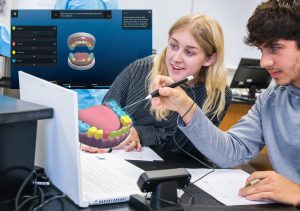 By combining career awareness, exploration, and preparedness, zSpace equips learners with the tools needed for future careers. With AR/VR shaping the future of workforce development, learners using zSpace are better prepared to pursue careers that drive innovation.
By combining career awareness, exploration, and preparedness, zSpace equips learners with the tools needed for future careers. With AR/VR shaping the future of workforce development, learners using zSpace are better prepared to pursue careers that drive innovation.
The journey from classroom to career has never been more exciting, and with zSpace leading the way, students have the opportunity to explore, learn, and succeed in a fast-changing world.
Unlock your learners’ potential in your state with zSpace’s immersive AR/VR career exploration before opportunities pass them by. Contact zSpace today for a personal demonstration: https://info.
Michael Carbenia, Senior Executive Director of Workforce, zSpace [email protected]
The views, opinions, services, and products shared in this post are solely for educational purposes and do not imply agreement or endorsement by Advance CTE, nor discrimination against similar brands, products, or services not mentioned.


 Career Technical Education (CTE) systems are filled with proud moments of learner achievement, from graduation ceremonies to competitions and certifications. Research consistently shows that these recognition opportunities have positive impacts, increasing knowledge and engagement in learning. At NOCTI/Nocti Business Solutions (NBS), we believe in recognizing talent across all CTE stakeholder groups, including education professionals. These professionals include teachers, administrators, work-based learning coordinators, and data professionals—roles that are important to the success of CTE systems. Let’s explore the unique certification opportunities designed specifically for CTE professionals and why they are essential for navigating the seas of career success
Career Technical Education (CTE) systems are filled with proud moments of learner achievement, from graduation ceremonies to competitions and certifications. Research consistently shows that these recognition opportunities have positive impacts, increasing knowledge and engagement in learning. At NOCTI/Nocti Business Solutions (NBS), we believe in recognizing talent across all CTE stakeholder groups, including education professionals. These professionals include teachers, administrators, work-based learning coordinators, and data professionals—roles that are important to the success of CTE systems. Let’s explore the unique certification opportunities designed specifically for CTE professionals and why they are essential for navigating the seas of career success  From the first Career Technical Education (CTE) course in middle or high school to the final class in a pathway, course content should encourage learners to envision a future in high-pay, high-growth careers. As a State CTE Director, you may be leading your state CTE adoption, interested in increasing the number of learners in your state who take CTE courses, or working in a state that needs to boost its economic development through CTE. Whatever your initiative is, build CTE momentum in your state by encouraging your state’s CTE department leads, administrators, and teachers to try these three ways to encourage career exploration, provide up-to-date career information, and help learners prepare for a job search.
From the first Career Technical Education (CTE) course in middle or high school to the final class in a pathway, course content should encourage learners to envision a future in high-pay, high-growth careers. As a State CTE Director, you may be leading your state CTE adoption, interested in increasing the number of learners in your state who take CTE courses, or working in a state that needs to boost its economic development through CTE. Whatever your initiative is, build CTE momentum in your state by encouraging your state’s CTE department leads, administrators, and teachers to try these three ways to encourage career exploration, provide up-to-date career information, and help learners prepare for a job search. The key to CTE is practicing and building industry-specific skills.
The key to CTE is practicing and building industry-specific skills. 
 Rouxbe’s training supports CTE programs in unlocking career success, aligning with the four evidence-based strategies, or “keys”: postsecondary education and career guidance, dual enrollment opportunities, work-based learning, and industry-recognized credentials. By integrating Rouxbe into their curriculum, CTE educators can provide learners with access to high-quality education and career-connected experiences that set them up for success in the culinary field.
Rouxbe’s training supports CTE programs in unlocking career success, aligning with the four evidence-based strategies, or “keys”: postsecondary education and career guidance, dual enrollment opportunities, work-based learning, and industry-recognized credentials. By integrating Rouxbe into their curriculum, CTE educators can provide learners with access to high-quality education and career-connected experiences that set them up for success in the culinary field. 

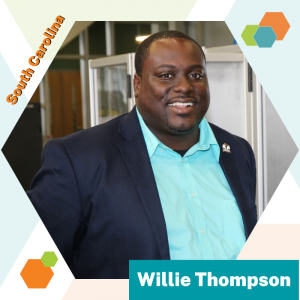 Willie Thompson
Willie Thompson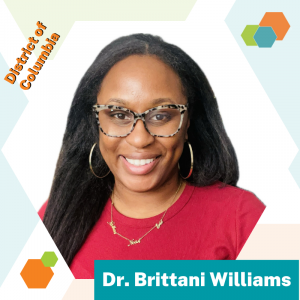 Dr. Brittani Williams
Dr. Brittani Williams  Kellise Williamson
Kellise Williamson  Mike Woods
Mike Woods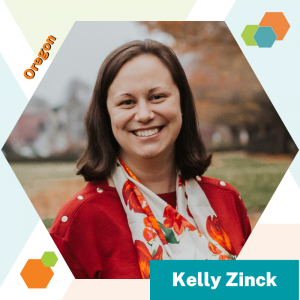 Kelly Zinck
Kelly Zinck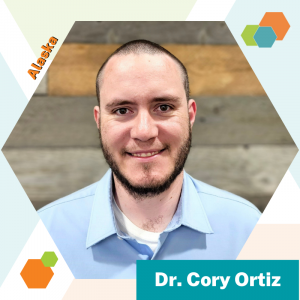 Dr. Cory Ortiz
Dr. Cory Ortiz 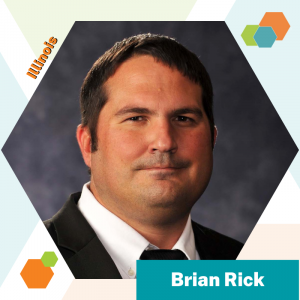 Brian Rick
Brian Rick  Dr. Sara Shaw
Dr. Sara Shaw  Dr. Shelanda Simmons
Dr. Shelanda Simmons Yingfah Thao
Yingfah Thao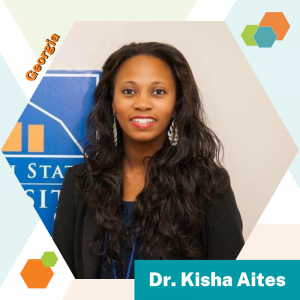 Dr. Kisha Aites
Dr. Kisha Aites NiñaFe Awong
NiñaFe Awong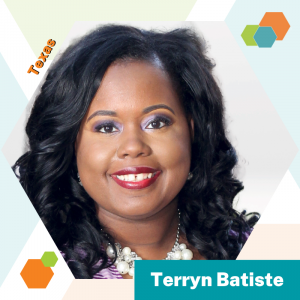 Terryn Batiste
Terryn Batiste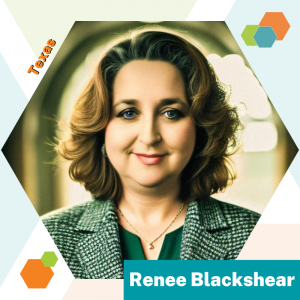 Renee Blackshear
Renee Blackshear Ignacio Chaparro
Ignacio Chaparro